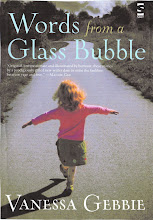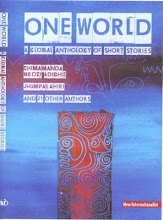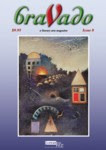The story is called The Note Takers:
You are not looking forward to this. Your appointment is at three. You have been trying to remember what you dreamed about last night, for much hinges on it.
This is what they do now, these note-takers. There are scheduled meetings and they even have tea brought but it is no comfort. You sometimes think you can taste salt.
“So?” they say. (You cannot be specific as to gender. It is arbitrary.) “So?” (This is the overture.) “Tell me your waking dream.”
You do try. One’s waking dream, of course, is the easiest to recall, although fragmentary. You must create truth, like glass, out of sand dug from that strange country between sleeping and not.
WHOLE CAFE IRREAL STORY HERE
Some great work up this issue, and small world: I recognise the names of Bruce Holland Rogers and Paul Blaney. Paul is guiding light of Tales of The Decongested in London, and teaches in the USA. Bruce Holland Rogers is a fellow contributor to the forthcoming Field Guide to Flash Fiction (Rose Metal Press).
If anyone is interested to read a little more about Irreal fiction,(think Kafka, especially) here are two excellent essays by one of The Cafe Irreal Editors, G S Evans:
Irrealism and the Dream State LINK HERE
What is Irrealism? LINK HERE




.JPG)























5 comments:
I have been wondering what the difference is between surreality and irreality, and it seems from the second of these articles that the thing which distinguishes irreality is a kind of uncertainty, a lack of concrete symbolism. But the author never mentions the world 'surreal' so I'm still not all that certain!
Seems to be a fine difference, Elizabeth... this snippet from one of the co-editors, taken from another of the essays on the site, seeks to explain rather better, perhaps.
I can understand the surrealists work linking dreamstate and dream images to reality. Think of Dali's strange works whihc always remind me of dreams, and have been analysed by psychoanalists as being related to them, I think.
Irreality isnt concerned with dreams and symbolism, apparently (all I can do is coy and see if I understand!), rather with juxtaposing ordinary things next to each other that do not belong together, creating a conflict that cannot be resolved in reality.
oops. forgot the essay portion:
As G.S. Evans noted in his essay, “Irrealism is not a surrealism,” the surrealists claim that they are interested in using art to “research” the subconscious mind, which is viewed as the true reality. The techniques used by surrealism are designed to make subconscious material available to the conscious mind, but exploring a dream is as legitimate a way of doing so as creating a photomontage. Evans says, “…the surrealists, in believing that the dream state reflects a concrete reality (the unconscious), hold that this reality can interact with the “physical” reality of the world and be synthesized into a higher reality, a surreality. Irrealists, on the other hand, hold that there can be no such synthesis between dreams and reality; that there is an inherent tension between the two and that, indeed, the point of an irreal [work of art] is to bring out this unrelenting tension between what we can imagine (the dream) and what is possible (reality).”
Interesting. So is it simply absurdist? Though having written that I'm presuming not, as traditional absurdism usually has a political point relating to concrete reality, as far as I know.
You've got me, Elizabeth. It seems to be a fine distinction between surreal and irreal, as far as I can see. I'm not much good with these labels!!
Post a Comment